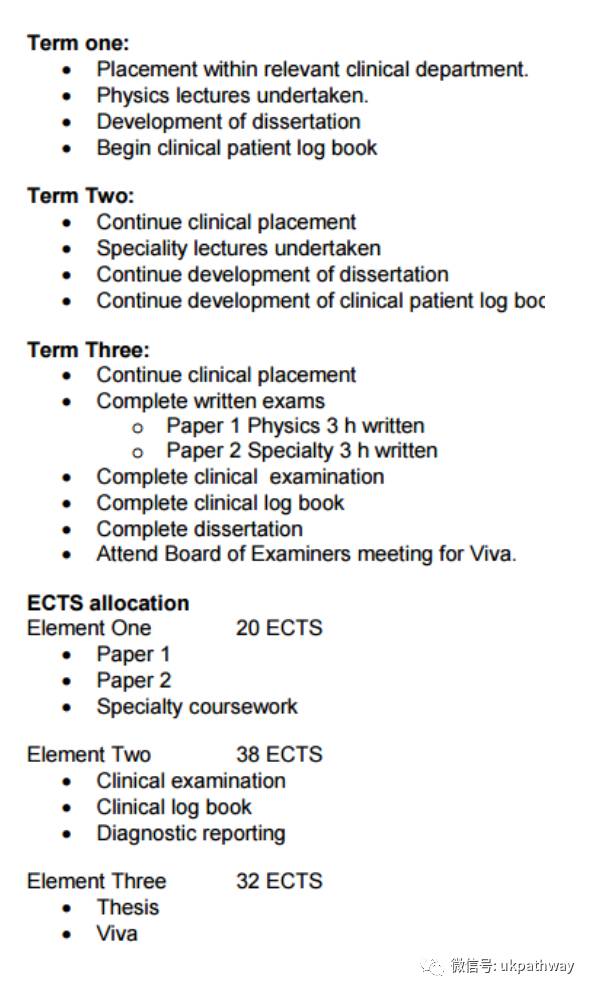2.2可以去帝国理工读哪些医疗相关专业?
Imperial College London

Department of Medicine
a. MSc Immunology
http://www.imperial.ac.uk/medicine/study/postgraduate/masters-programmes/msc-immunology/
2.2 Honours degree in an appropriate science subject, medicine, dentistry or veterinary science.
就业方向
免疫学课程为有意从事科研工作的毕业生提供优秀的培训。
大量的毕业生继续深造进行博士学位,或,如果具备相应的医学资质,可以参与临床实践或研究。
除了科学训练外,本课程扩展了相关课程帮助学生转换所学知识,使他们能够进入包括金融、管理和各类咨询在内的各种非科学领域。
核心课程:
▪ Core & Innate Immune System in Health
▪ Adaptive Immunity in Health
▪ Immune Regulation
▪ Mini-Research Project (MRP)
▪ Immunity in Disease
b. MSc Molecular Biology and Pathology of Viruses
http://www.imperial.ac.uk/medicine/study/postgraduate/masters-programmes/msc-molecular-biology-and-pathology-of-viruses/
2.2 Honours degree in biological science, medicine or veterinary science.
课程内容:
▪ 在分子水平上深入了解病毒与病毒相互作用过程;
▪ 提供一个支持性的学习环境;
▪ 提供优秀的实验室和研究技能培训;
▪ 为有意攻读博士学位的研究者提供坚实的研究基础;
▪ 培养毕业生从事学术或工业研究的事业
Document Required: Thesis
Structure
The thesis should not exceed 10,000 words. It should be divided into the following sections:
Title Page
▪ Acknowledgements
▪ Table of Contents
▪ Abbreviations
▪ Abstract (approximately 1/2 to 1 page)
▪ Introduction (approximately 10 to 20 pages)
▪ Materials and Methods (approximately 10 pages)
▪ Results (approximately 10 pages)
▪ Discussion (approximately 10 pages)
▪ References (approximately 10 pages)
The thesis should be typed, with lines double spaced and with suitable margins to permit binding.
Each major section (Introduction, Material and Methods etc.) should start at the top of a new page.
Paragraphs should be made clearly visible either by indenting the first line (by 5 spaces) or by leavingan additional blank line between paragraphs.
Before you start writing your thesis, it is a good idea to look at some previous theses to see what thefinished ones look like. Ask your supervisor to recommend the best examples.
c. MSc Molecular Medicine
http://www.imperial.ac.uk/medicine/study/postgraduate/masters-programmes/msc-molecular-medicine/
2.2 Honours degree in medicine, biological dentistry or veterinary medicine.
研究领域:
本课程所涵盖的研究领域将涵盖诸如癌症、艾滋病、糖尿病、肝炎和其他公共健康问题等重大疾病
Topics covered include:
▪ Nucleic acids
▪ RNA transcription
▪ protein synthesis and processing
▪ gene expression
▪ recombinant DNA
▪ vectors
▪ transfer of genetic information
▪ polymerase chain reaction (PCR) and DNA sequencing
▪ genetic engineering
▪ immunochemistry
▪ protein structure and X-ray crystallography
▪ mass spectrometry
▪ glycobiology
▪ molecular biology databases and computation
▪ basic immunology
▪ gene mapping technologies
National Heart and Lung Institute
MSc Medical Ultrasound
http://www.imperial.ac.uk/medicine/study/postgraduate/masters-programmes/msc-medical-ultrasound/
2.2 Honours degree in medicine or a biological, engineering or physical science subject.
课程介绍:
This full- or part-time programme aims to provide cliniciansand medical scientists with intensive training in both thetheoretical basis of medical ultrasound and the requiredscanning and diagnostic skills in the various specialities.
The programme is both academic and vocational in nature. Itaims to produce students who can use research anddevelopment skills in order to develop the field of MedicalUltrasound.
核心课程:

职业前景:
This course is widely recognised as an important qualificationfor people intending to pursue a career in Medical Ultrasound.
Every year, a high proportion of the students goon to study for an MD(Res) or PhD.
Most of the medicallyqualified students return to clinical practice, where the MScprovides a solid background for further research.
Others havegone into a wide range of careers, including specialisedsonographers, physiologists, and other healthcareprofessionals in the NHS or abroad.
继续攻读博士学位,从事超声检查,或者生理学工作
School of Public Health
MSc Epidemiology
http://www.imperial.ac.uk/medicine/study/postgraduate/masters-programmes/msc-epidemiology/
职业前景:
a good degree in a quantitative health science or in mathematics or statistics from a
University of good standing.
三分之二的学生继续从事更高层次的学术研究,其余毕业生在医疗保健行业,以及一些政府非政
府机构中任职
核心课程
▪ Introduction to Statistical Thinking and Data Analysis
▪ Principles and Methods of Epidemiology
▪ Infectious Disease Modelling
▪ Principles of Global Epidemiology


